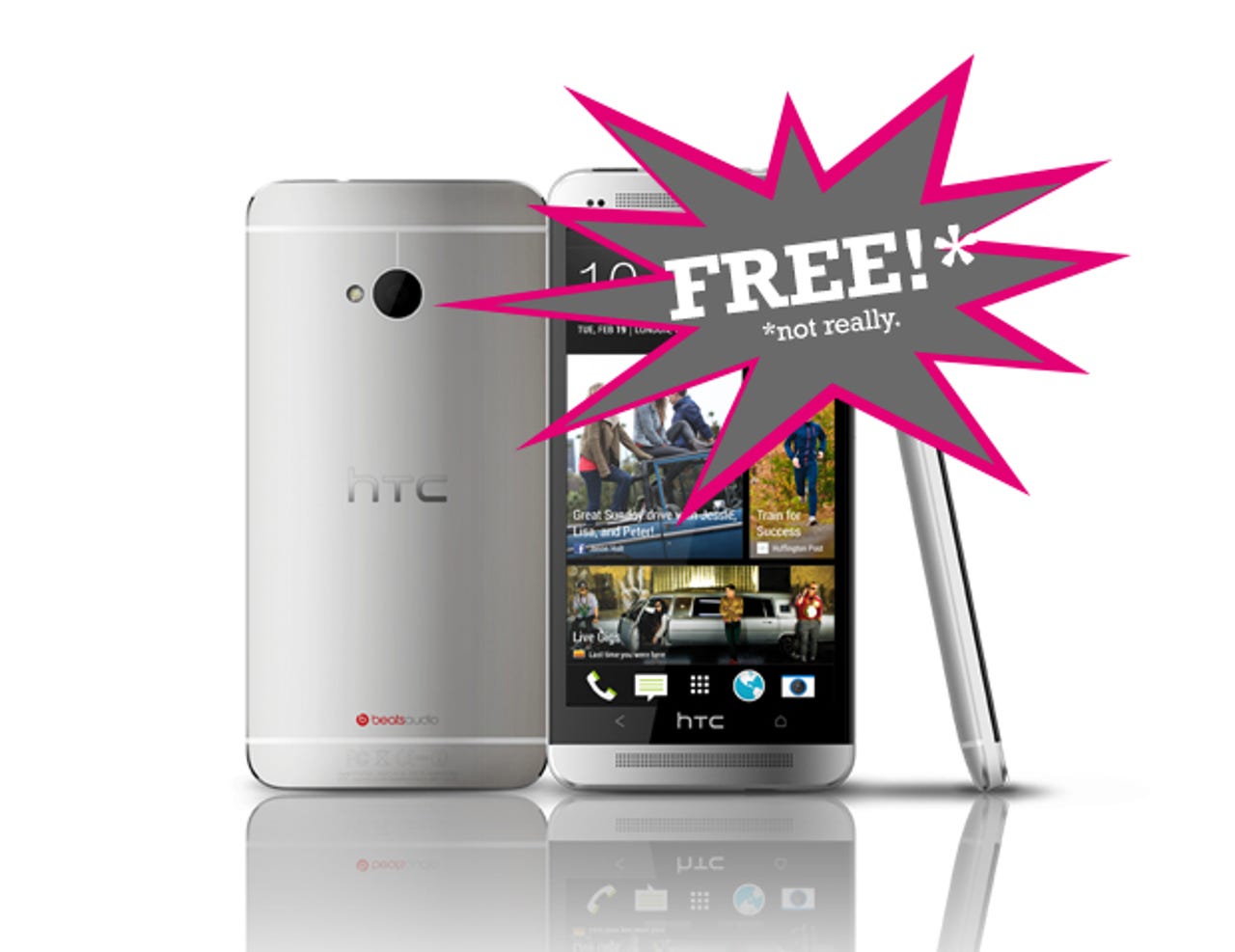T-Mobile gets aggressive, offers all phones for $0 at purchase


You've got to admire T-Mobile, which has found its mojo this year by throwing in the towel on its old fight-with-Verizon-and-AT&T-for-high-end-users strategy and doubling down on the cost-conscious side of the market.
This morning, the No. 4-ranked U.S. wireless carrier announced a new promotion offering the company's entire lineup of phones for no upfront payment.
Here's the rub: the devices are not free. Their cost is merely spread over the duration of a two-year contract.
If you're familiar with how the wireless market works, this isn't entirely novel. Carriers make their money on services, not phones. That's why they're loathe to allow customers to upgrade: even with upfront payments as high as $200, the carrier may not have collected on the remainder of the true price of a phone (upwards of $600) until you're well into your two-year contract. The service subsidizes the hardware.
But for T-Mobile to spread the cost out over the entire "contract" (*see my clarification about this term below)—which raises the monthly price, but lowers that initial financial hurdle for signing up—is a departure in an industry that has been timid to break convention. The carrier may not be a financial darling, but it's hard to argue that it hasn't consistently been willing to experiment, such as when it did away with contracts for some customers in 2009.
Under the company's new promotion—which starts this Saturday—customers can walk out of a T-Mo store with a 16-gigabyte iPhone 5 in hand and no $200 setback. The added cost: $27 per month.
There's a bit of a Darwinian popularity contest in the pricing, too: Samsung's Galaxy S4 is $25 per month extra. So is BlackBerry's Q10. Nokia's Lumia 521 is just $5 extra. Hmm.
What I'm wondering is just how high of a hurdle that initial cost is. Is T-Mobile's target customer lacking the liquidity for a $200 upfront payment, or is the carrier experimenting with the notion that the average customer feels less financial pain when the cost is distributed in a subscription model? And does it matter when the average sales price of a smartphone is falling?
We'll find out.
*A clarification about my use of this word: It's not a two-year service contract in the traditional sense; your service fee is monthly and you can walk away at any time without penalty. But you're making payments for a phone for 24 months, and if you cancel service before that period ends, you must pay the balance for the device in full. (For the iPhone 5, that's $648.) In other words, you're on the hook for the full-price phone either way—you only get the benefit of the monthly spread as long as you continue service. Still a good deal, but there is certainly some obligation baked in. Hence, "contract."